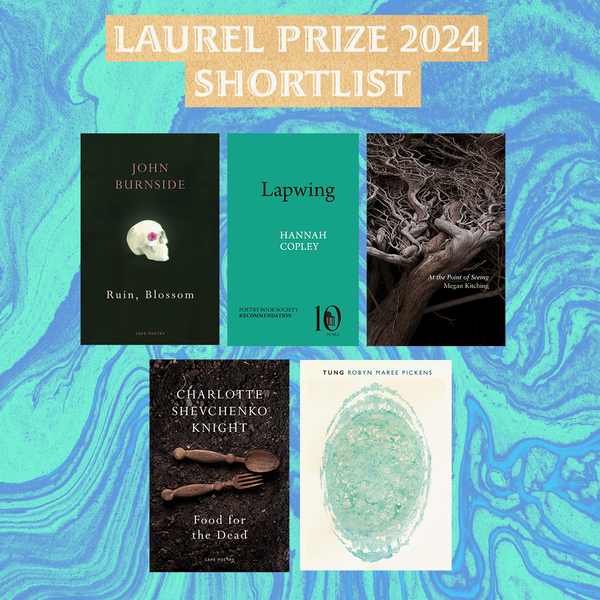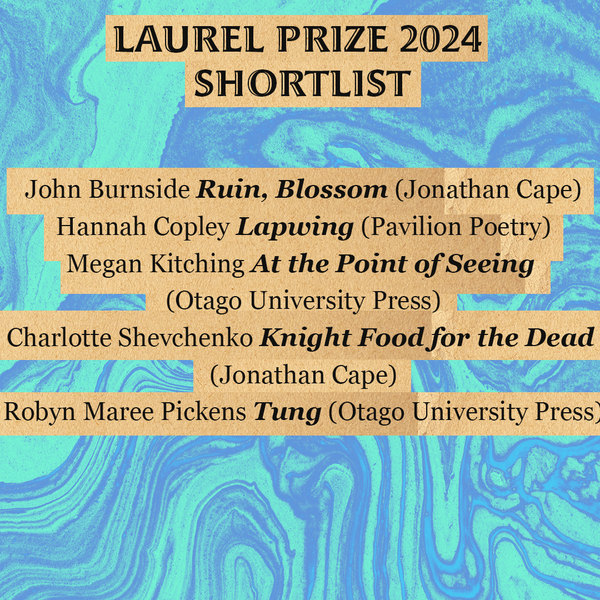Shortlist of five eco-poetry collections recognised
UK Poet Laureate, Simon Armitage, and National Landscapes partners Poetry School, are delighted to announce - the shortlist for the annual nature and ecopoetry prize, The Laurel Prize.


The prize is funded by Simon Armitage’s Laureate’s honorarium, which he receives annually from the King, and is run by the Poetry School. It is awarded to the best collection of environmental or nature poetry published each year. The shortlist, judged this year by the poets Mona Arshi (Chair), Caroline Bird, and Kwame Dawes – is as follows (in alphabetical order):
John Burnside Ruin, Blossom (Jonathan Cape)
Hannah Copley Lapwing (Pavilion Poetry)
Megan Kitching At the Point of Seeing (Otago University Press)
Charlotte Shevchenko Knight Food for the Dead (Jonathan Cape)
Robyn Maree Pickens Tung (Otago University Press)
The prize awards £5,000 (1st prize), £2,000 (2nd prize), and £1,000 (3rd prize). There’s also a £500 award for each of the Best First Collection UK and Best International First Collection.
The winner of the best first collection UK will receive a commission from National Landscapes to create a poem based on their favourite UK landscape.
This year’s Laurel Prize Ceremony will take place on Saturday 19 October at 5.30-6.30pm (BST), and there will be a free live-stream. This year it is the highlight of the first edition of Summit: A Poetry School Festival, a landmark celebration of ecopoetry, nature, and climate writing, realised in collaboration with University of Leeds Poetry Centre, the Laurel Prize, National Landscapes, the National Poetry Centre and Yorkshire Sculpture Park.
The Summit festival brings together some of the UK’s most celebrated writers and ecological thinkers for two days of performances, workshops, poetry surgeries, and panel discussions. Summit’s ethos is centred around poetry, community, and action. The festival provides a vital space to consider how words, and worlds, are deeply connected, and what role poetry plays as we face up to immense biodiversity losses, habitat destruction, rising carbon emissions, and warming temperatures.
Kwame Dawes 2024 Judge Poet, Editor and Critic says:
“There is something affirming about reading poets who are deeply committed to the mission of finding language to capture the lived experience of their lives — in so many ways, poets offer a powerful insight into the sentiment of our times, and so they offer as it were, a sensibility that reminds us not just of the facts of memory, but the blood and spirit of memory. The best poems are those in which the trauma that is unfolding on our physical world is neither incidental nor is it mere subject, but it is deeply embedded in their accounting of our times. In the end, we found great poetry that is urgent, surprising and truly alert to the earth in its complex and deeply alarming historical moment.”
